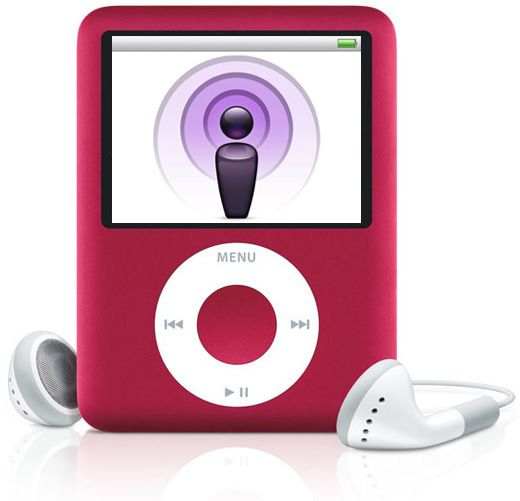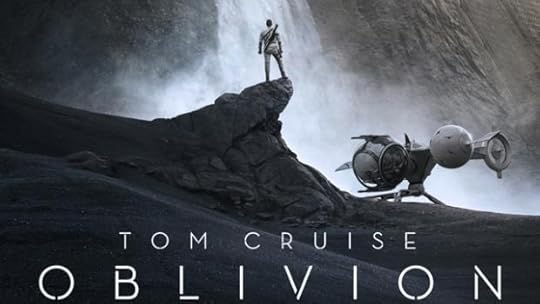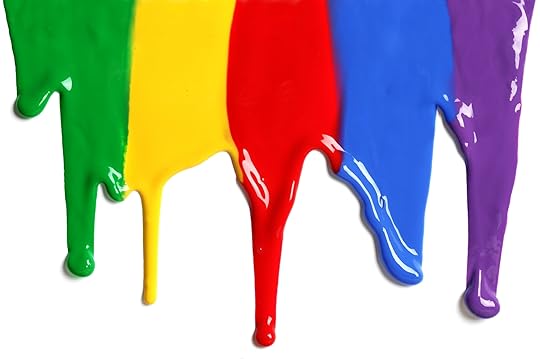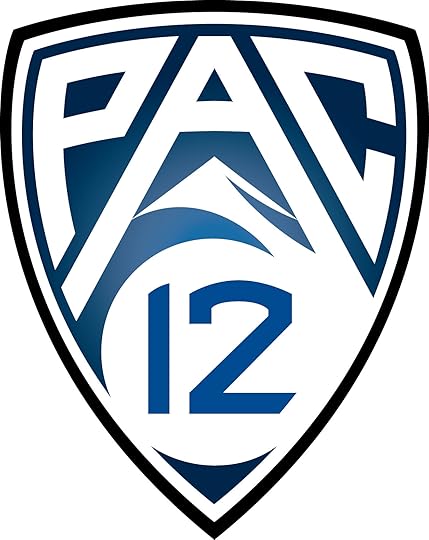S. Evan Townsend's Blog, page 119
October 23, 2013
Diminishing the Brand
 I'm kind of weird. I like things a lot of other people find difficult and/or boring. For instance, I like math (I'm just not very good at it). I like science. And I have a deep autodidactic interest in economics.
I'm kind of weird. I like things a lot of other people find difficult and/or boring. For instance, I like math (I'm just not very good at it). I like science. And I have a deep autodidactic interest in economics. You know that scene in Ferris Bueller's Day Off, with the economics teacher played brilliantly by ? This scene. Not only did I know all the answers to his questions, I wanted to listen to more! I have taken one 200-level economics course in college but because of my major that's all I could fit in even though I found the subject very interesting. Also, I've read economics books (mostly for general audiences) and every book nearly I can get my hands on by economists Walter E. Williams of George Mason University and Thomas Sowell of Stanford. So I probably know a bit more about economics than the average Joe ("Ricardo's Principle of Comparative Advantage, anyone, anyone?").
So, I need to get a bit esoteric here (and don't let the scary chart above scare you). In economics there's the law of supply and demand. Basically it relates how supply (the amount available of something) affects its price. Lots of supply means low price (like salt; I think I last paid 10 cents for a thing of salt). Not much supply: high price (like diamonds). So if there is a lot of something available, the price of it is going to go down. Remember that for later.
Now, there is a principle in business and marketing called "diminishing the brand." If, for instance, Lexus put out a $15,000 econobox car, it would reflect badly on their $100,000 cars. It would "diminish the brand." Doesn't matter if the $100,000 car is still just as good as before, people would perceive it differently. This is probably one reason why the Volkswagen Phaeton flopped in the U.S. Who's gonna buy an $80,000 car from the people who brought you the Beatle? (Yes, I've now combined two of my loves: economic and cars, sorry about that.)
So here's where you as a writer should care. There are 1 million (about) books available on the Kindle because the costs of publishing on the Kindle run from zero to not very much (depending on how much work you do yourself). That has increased the quantity of books available. And by the laws of supply and demand, the price of all books, even those not self-published, have to come down. Also, buying a self-published Kindle book is a bit of a crap shoot. You could end up with a Yugo (to continue the car analogy) or a Lexus. Or better yet, a BMW (a bit more passion than a Lexus).
I suspect a great deal of the self-published (i.e., "indie") books on Kindle and other formats (including paperback), are pretty mediocre. Well, you've got half a million or so indies, they can't all be brilliant undiscovered diamonds in the rough. So people are expecting less from writers and our brand, so to speak, is being diminished by a huge supply of not-very-good books. The supply has gone way up so the price is being driven down (as low as zero in some cases). The quality has gone down too, so the brand "author" has diminished and this, too, has driven prices down.
I don't have a solution. Amazon reviews help (but some indies get their friends and families to leave a bunch of 5-star reviews while I get a 2-star review because someone doesn't like my writing or something). Even if you have a bunch of 4 and 5-star reviews, your brand is being diminished bythe shear quantity and low quality of other "authors."
And it seems those who sell the most books are not those who write the best books but are best at promotion (which might be sour grapes on my part because I seem to suck at promotion).
Published on October 23, 2013 08:30
Podcast Interview
 Today you can hear me being interviewed for a podcast by Brian LeTendre. Brian does a great interview and it was a lot of fun and I think you'll have fun listening to it. Well, except maybe the goofy guy talking about his writing. Oh wait, that me. The podcast is available on Brian's blog. The interview starts at 5:29 into the podcast. Boy, I hate listening to my own voice.
Today you can hear me being interviewed for a podcast by Brian LeTendre. Brian does a great interview and it was a lot of fun and I think you'll have fun listening to it. Well, except maybe the goofy guy talking about his writing. Oh wait, that me. The podcast is available on Brian's blog. The interview starts at 5:29 into the podcast. Boy, I hate listening to my own voice.
Published on October 23, 2013 06:12
October 22, 2013
eBook Giveaway
 I am, at this very moment, at 1,943 followers on Twitter. At 2,000 followers I'm going to give a free ebook to one of the last 100 followers (of which there are already 43). The ebook will be one of my four published novels in either Kindle (mobi), Nook/iBooks (epub), or PDF format. The lucky winner will be chosen at random so you have a 1 in 100 chance of winning.
I am, at this very moment, at 1,943 followers on Twitter. At 2,000 followers I'm going to give a free ebook to one of the last 100 followers (of which there are already 43). The ebook will be one of my four published novels in either Kindle (mobi), Nook/iBooks (epub), or PDF format. The lucky winner will be chosen at random so you have a 1 in 100 chance of winning.Good luck!
Published on October 22, 2013 12:04
October 20, 2013
Huskies are Unranked
 For the past two weeks I have not been able to watch the University of Washington Huskies play football wearing my lucky hat and one of my two jerseys (purple for home games, white for away). And the last two weeks they lost, badly. The week before I was able to watch them play Stanford, ranked #5 at the time before their loss to Utah, and I believe a bad official call cost them a chance to win that game.
For the past two weeks I have not been able to watch the University of Washington Huskies play football wearing my lucky hat and one of my two jerseys (purple for home games, white for away). And the last two weeks they lost, badly. The week before I was able to watch them play Stanford, ranked #5 at the time before their loss to Utah, and I believe a bad official call cost them a chance to win that game.Two weeks ago I was at a writers' retreat and unable to watch as they played Oregon. Now, admittedly, Phil Knight's money bought the Ducks the #2 team in the nation. I didn't really expect them to win. But I hoped they wouldn't get slaughtered. The score was 24-45. That's pretty bad. That dropped the Huskies to #20 in the rankings.
But this week we played Arizona State. ASU was briefly ranked #22 in week six but a loss at Notre Dame dropped them out of the top 25. I was not worried. The Huskies had proven themselves capable. With the win at Illinois they seemed to have broken the away-game curse (having not won an away game for ages before that).
 I, again, didn't watch the game. I was at a Toastmasters conference out of town. I did my best to follow the game through Siri on my iPhone. I was not happy. This was not what I expected nor wanted. It was as if the Huskies of old were back. I got a bit of teasing about what a huge Husky fan I am but I pointed out that I hung through the Willingham era.
I, again, didn't watch the game. I was at a Toastmasters conference out of town. I did my best to follow the game through Siri on my iPhone. I was not happy. This was not what I expected nor wanted. It was as if the Huskies of old were back. I got a bit of teasing about what a huge Husky fan I am but I pointed out that I hung through the Willingham era.The final score was 53-24. I don't know what happened. I didn't see the game. I wonder if they were so beat up by Oregon they came into this game already defeated. I don't know. I do know my dreams of a 10-2 season are gone. Best now would be 9-3 (and we still have to face UCLA which is currently ranked 12th). And as a result of this game, the Huskies dropped out of the top 25 (and will be lucky to get back in, unless they beat UCLA in some miracle).
And the horrible, horrible thing is, Washington State has a better record than the Huskies at 4-4 (2-3 in the Pac-12) versus the Huskies 4-3 (1-2 in the Pac-12). I'm thinking this might be an 8-4 season, which is only a slight improvement over the past two years' 7-5. Next week we play hapless California (1-6) at home so maybe we can get our groove and confidence back before the last four games of the season. I do know one thing, it would take an act of God for me not to be in front of the television with my lucky hat on (which is 4-1 this season). Yes, I try to think scientifically. But when it comes to sports, there's not much science involved in my love for the Huskies.
Published on October 20, 2013 12:56
October 18, 2013
Movie Review: Oblivion
 I was real hesitant about watching Oblivion, staring Tom Cruise and Morgan Freeman (although I was more interested in
I was real hesitant about watching Oblivion, staring Tom Cruise and Morgan Freeman (although I was more interested in Also, the first disc we got from Netflix wouldn't play (we spent 40 minutes trying to get it to play, cleaning the disc, rebooting the player, updating the player's software) and then we lost the replacement disc and spent an evening looking for it (I'd accidentally thrown it out). So it took us a while to get around to watching it.
So, this was a lesson in not relying on first impression.
Oblivion is a good movie. It's not great but it is good. And without giving away spoilers, it's hard to explain how good it is. The effects are very good and you forget that they are probably CGI but you don't care. Cruise does a great job, as does Andrea Riseborough (Ms. Kurylenko's talent was wasted on her role, I thought). There's action, suspense, and . . . no, I can't give it away. Sometimes the action gets over whelming and the action sequences run long (and one looked a lot like the ending sequence of TRON: Legacy). And Morgan Freeman has seemed to have slipped into the "old wise man character" type-casting. Some of the visuals are a little over-the-top. The Empire State Building buried in silt up to its observation deck, for instance, while the Brooklyn Bridge is mostly visible. The Pentagon has a crater in the middle of it as if it was nuked but somehow the rest of it survived. And it and a leaning Washington Monument are the only buildings visible in Washington D.C.
However, if you like science fiction you should really enjoy Oblivion. If you don't like science fiction, you would still probably enjoy it, especially the character study of Riseborough's role, who is trying to hold things together as, in her view, Cruise goes a bit wacko. And there was no environmental preaching or anti-military propaganda. There was really nothing offensive in the movie at all (unless you don't like looking at the backside of a naked female).
One last note (and call me sexist but I don't care), Olga Kurylenko is a very beautiful woman (see Quantum of Solace ) but it seems director Kosinski did his best to keep her looking plain. Maybe he didn't want her to outshine Riseborough (who has an odd beauty, as if you can't quite figure out what makes her beautiful, you just know she is) but if Kurylenko wasn't in baggy overalls she was in a plaid button-down shirt.
Published on October 18, 2013 15:16
October 15, 2013
Writers' Retreat
 Last weekend I and five other members of the Moses Lake Muses did a "writers' retreat." (I've never understood why such things are called a "retreat," which I associate with giving up and running away. Maybe it's the running away part.) The object was to write as many words as possible and find inspiration, work through ideas and problems, and just have fun and camaraderie. Six writers in the same room meant one of two things: a muted cacophony of fingers tapping on laptops or talking, laughter, and not much else going on. It was great.
Last weekend I and five other members of the Moses Lake Muses did a "writers' retreat." (I've never understood why such things are called a "retreat," which I associate with giving up and running away. Maybe it's the running away part.) The object was to write as many words as possible and find inspiration, work through ideas and problems, and just have fun and camaraderie. Six writers in the same room meant one of two things: a muted cacophony of fingers tapping on laptops or talking, laughter, and not much else going on. It was great.I got about 4,000 words written on my work in progress (WIP) and some major plotting done. Also through one of the exercises we did I came up with an idea for a story that probably isn't novel length but could be a short or a novella. It starts with a teenaged girl waking up in Purgatory.
This was the Muses first retreat and I think it was a great success. Francis Pauli put it together and did a great job. The only downside was the accommodations were a little low-rent for me. But my idea of roughing it is a hotel without 24-hour room service.
A great time, a productive time, and an exhausting time (I fell asleep at 8:00 P.M. the day it ended).
P.S.: This is my 200th post on this blog!
Published on October 15, 2013 11:24
October 10, 2013
WIP Not in P
 Been working on this WIP (Work in Progress) for, well, almost 25 years. Circa 1988 I thought up this little scene where a private detective is in his office, his secretary in the antechamber, when: "Rose buzzed. She did that when she was annoyed, her carapace and wings oscillating in a frequency that cut through the skull."
Been working on this WIP (Work in Progress) for, well, almost 25 years. Circa 1988 I thought up this little scene where a private detective is in his office, his secretary in the antechamber, when: "Rose buzzed. She did that when she was annoyed, her carapace and wings oscillating in a frequency that cut through the skull."Later (circa 2003) I started writing a story around that (on an airplane, I remember). I've written just under 10,000 words (including some today) and I have no idea where to go with it. I'm trying to do a Dashiell Hammett novel in space/the future. (Hammett wrote The Maltese Falcon which the movie by the same name starring Humphrey Bogart was based.) Being a hard-boiled detective novel, it needs a cynical yet honorable hero (check), it needs mystery (check, even I can't figure out what's going on), it needs plot twists and turns (not yet), and it needs style (I'm working on that).
The other problem is an idea I have involving a black hole. But the math and physics are kicking my butt. I'm hoping if I can solve those problems (and I found someone who's volunteered to help), that'll let me plot out the rest of the novel. But maybe not. It's frustrating. I'm going on a writers' retreat tomorrow with the local writers' group. Maybe the lack of distraction will get me to write. Or maybe I'll stare at my blinking cursor for three days. Dunno. But my WIP is not Progressing much at this point.
Published on October 10, 2013 15:43
October 7, 2013
Colorful Language
 The new $100 bill comes out tomorrow and its very colorful. Almost looks Canadian. And I joked on Twitter "Money isn't green anymore" (even though the back of the bill is mostly green).
The new $100 bill comes out tomorrow and its very colorful. Almost looks Canadian. And I joked on Twitter "Money isn't green anymore" (even though the back of the bill is mostly green).And that got me thinking (oh-oh) about how we use color in our language. Here are some examples I thought of off the top of my head:
In the black: making a profit, not brokeIn the red: not making a profit, brokeRed ink: something that causes you not to make a profitRed tape: regulations, bureaucracyGreen: money, wealthGreenbacks: money, cashGreen: environmentally friendlyIn the pink: healthyBlue: sad, depressedYellow journalism: bad journalism (you know, like the New York Times)Golden: good (this might be more in reference to the metal than the color)Red state: conservative/RepublicanBlue state: liberal/DemocratBlack list: list of banned things or peopleYellow Dog Democrat: someone (in the U.S. South) who votes Democrat, even if it's a yellow dog runningAnd there's got to be more! I'm not sure if other languages do this to the extent we do in English.
If you have more examples, please leave them in the comments!
Published on October 07, 2013 12:09
The Pac-12 is Strong This Year
 If you read this blog you are probably aware I'm a University of Washington Huskies football fan. In fact, I'm a bit of a die-hard fan: I even stuck by them through the Tyrone Willingham era which culminated in an 0-12 season in 2008. So I was really excited this year because the Huskies are looking really good (with only one loss so far and that was to #5 Stanford and on what I think was a bad call).
If you read this blog you are probably aware I'm a University of Washington Huskies football fan. In fact, I'm a bit of a die-hard fan: I even stuck by them through the Tyrone Willingham era which culminated in an 0-12 season in 2008. So I was really excited this year because the Huskies are looking really good (with only one loss so far and that was to #5 Stanford and on what I think was a bad call).That's the good news. The bad news is, the Pac-12, their conference, is looking really strong this year, too. We are through six weeks of play this year and there is only one team in the Pac-12 that has a losing record: California at 1-4. (Yes, Colorado is 2-2 but, technically, that's not a losing record.) And there are still three undefeated teams: Oregon (#2 in the AP rankings), Stanford (#5) and UCLA (#11). And three more teams have only lost one game so far: Washington (#16), Oregon State (unranked since their first-week loss to an FCS team), and Arizona (who has only played 4 games). So half the Pac-12 have lost one game or less.
The Huskies, it seems, chose a bad year to be good. Looking at their upcoming schedule they play Oregon next week, a game I think they have a chance to win given how well they played against Stanford, and after that I don't see a team that they shouldn't beat (UCLA will be a challenge, too). I'll take a 10-2 regular season and then a bowl win. I'd even be happy with 9-3 and a bowl win. And next year, even though some key players will be leaving such as quarterback Keith Price, I'll bet they'll be pretty good if not better (their backup quarterback who will probably start next year looked pretty good against Idaho State).
And if head coach Steve Sarkisian at the helm, I think they will continue to improve. As long as Sarkisian doesn't get lured to the NFL. Or back to USC.
Published on October 07, 2013 08:30
October 6, 2013
Robbed
 A replay official determined the fate of: the Huskies undefeated season, the outcome of the Stanford game, the Huskies' national ranking, and the momentum the Dawgs will carry into Husky stadium next week facing the #2 Phil Knight Ducks. A replay official decided a 4th down pass was "incomplete" which gave the ball to Stanford on downs to end the game. The replay official said the ball hit the ground. I watched the replay and didn't see the ball hit the ground. The commentators watched the replay and didn't see the ball hit the ground. From the Seattle Times this morning:
A replay official determined the fate of: the Huskies undefeated season, the outcome of the Stanford game, the Huskies' national ranking, and the momentum the Dawgs will carry into Husky stadium next week facing the #2 Phil Knight Ducks. A replay official decided a 4th down pass was "incomplete" which gave the ball to Stanford on downs to end the game. The replay official said the ball hit the ground. I watched the replay and didn't see the ball hit the ground. The commentators watched the replay and didn't see the ball hit the ground. From the Seattle Times this morning:"It’s unfortunate it came down to a judgment call," [Husky head coach Steve] Sarkisian said. "…I wish the game had been won on the field and not in the booth upstairs with some guy that didn’t get to feel the emotion and hard-fought game it was."
The Huskies looked beat 12 seconds into the game when Stanford scored on a kick-off return. They looked beat over and over but they never looked defeated and answered and came back out fighting after each setback. There were mistakes and things to work on (once again, penalties were a huge issue for the Huskies). But they kept on fighting and never gave up. The only time quarterback Keith Price, who played the end of the game with a hurt thumb on his throwing hand, looked at all defeated was when the replay official made that bad call to end the game.
But look at these numbers: 21, 14, 14, 38. Those are the points by which the Cardinal defeated their previous opponents. The point difference in last night's game: 3. A 28-31 loss is a heartbreaker especially when the Huskies could have kicked a game-tying field goal or even made a touchdown to win the game. If it wasn't for a replay official who, in my opinion, made a bad call at the worse possible moment.
The national rankings aren't out yet. I think the Huskies should not drop in the rankings after their performance last night. But they probably will.
Published on October 06, 2013 08:38



